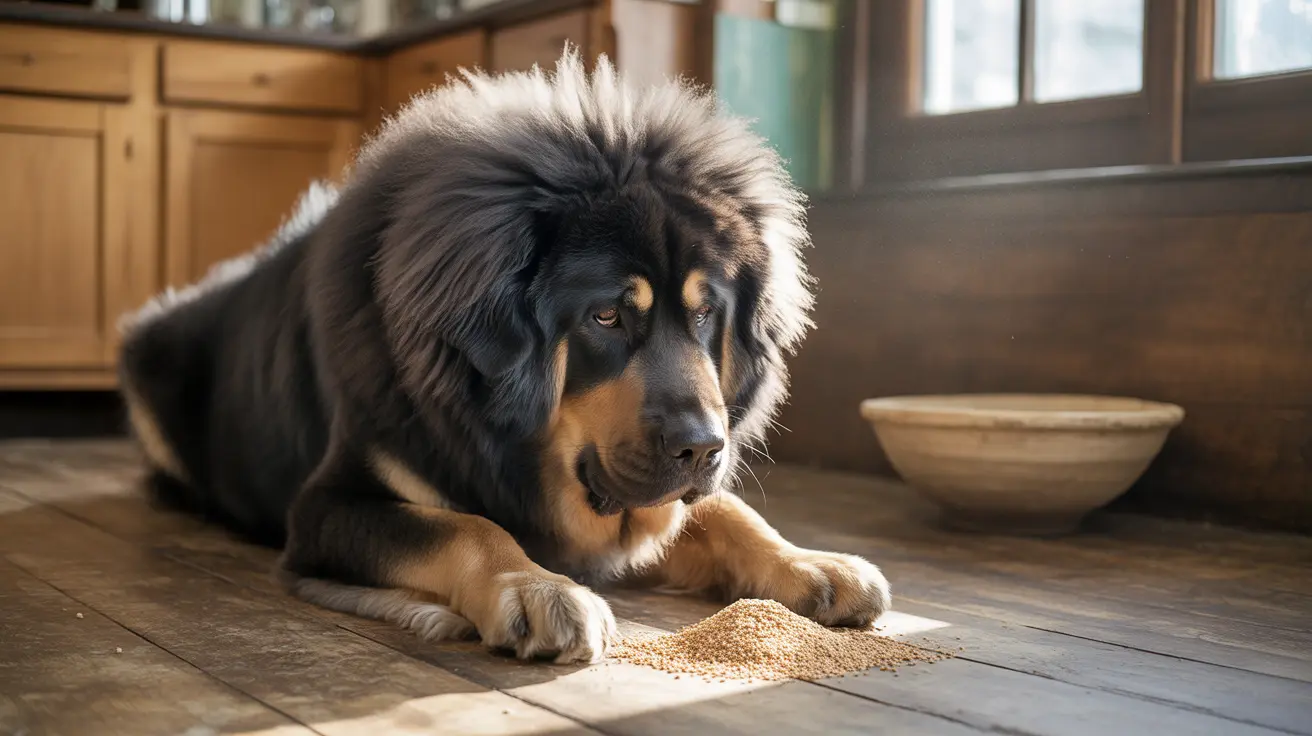À mesure que les propriétaires d’animaux s’intéressent de plus en plus aux aliments humains pour leurs compagnons à quatre pattes, la question de savoir si un chien peut manger des graines de sésame revient fréquemment. Ces petites graines, reconnues pour leurs bienfaits chez l’homme, nécessitent cependant une vigilance particulière lorsqu’il s’agit de l’alimentation canine. Découvrons tout ce qu’il faut savoir avant d’intégrer les graines de sésame dans l’alimentation de votre chien.
Comprendre la sécurité et les potentiels bienfaits du sésame pour les chiens est essentiel afin de faire des choix éclairés sur la nutrition de votre animal. Même si le sésame n’est pas toxique pour les chiens, il reste important de respecter certaines consignes et précautions.
Considérations de sécurité pour les chiens et les graines de sésame
En règle générale, les graines de sésame sont sans danger pour le chien lorsqu’elles sont données avec modération. Elles ne sont ni toxiques ni empoisonnantes, ce qui signifie que vous n’avez pas à paniquer si votre chien grignote quelques graines de votre pain ou de votre bagel. Cependant, la modération est primordiale pour éviter des complications, notamment en lien avec les risques nutritionnels sésame chien.
Le principal problème de sécurité survient en cas de surconsommation. Un excès de graines de sésame peut entraîner des troubles digestifs chez le chien, tels que :
- Diarrhée
- Vomissements
- Douleurs ou inconfort gastrique
- Ballonnements, flatulences
Bienfaits nutritionnels et limites
Si les graines de sésame renferment des nutriments intéressants, il est crucial de savoir que le chien assimile ces composés différemment de l’humain. Parmi les atouts nutritionnels du sésame pour chien, on retrouve :
- Calcium sésame chien pour la santé osseuse
- Fibres bénéfiques pour la digestion
- Acides gras insaturés favorables à la qualité du pelage
- Protéines et minéraux essentiels
Cependant, la plupart de ces nutriments sont déjà présents dans l’aliment pour chien naturel et équilibré. Comme le dosage sésame pour chien doit rester faible, l’impact nutritionnel réel reste limité.
Conseils de service et précautions
Si vous souhaitez offrir des graines de sésame à votre chien, suivez ces recommandations :
- Commencez par une toute petite pincée (pas plus de 1/4 de cuillère à café), mélangée à sa nourriture habituelle.
- N’utilisez que des graines nature, sans sel ni assaisonnement.
- Évitez absolument les variétés parfumées ou épicées.
- Observez votre animal pour détecter d’éventuels sésame effets secondaires chien.
- Pensez à moudre les graines pour faciliter la digestion (chien digestion graines de sésame).
Quand éviter le sésame dans l’alimentation du chien ?
Certaines situations exigent d’exclure totalement les graines de sésame de l’alimentation canine :
- Chien pancréatite sésame ou sensibilité aux matières grasses
- Chien obésité sésame ou en surpoids
- Chien allergie au sésame ou ayant des allergies connues
- Chiens sensibles sésame, notamment en cas de système digestif fragile
Questions Fréquentes
- Les chiens peuvent-ils manger des graines de sésame ?
Oui, en petites quantités et avec modération, elles ne sont pas toxiques. - Quels sont les bienfaits nutritionnels du sésame pour les chiens ?
Le sésame apporte protéines, fibres, calcium et antioxydants favorables à la santé digestive et osseuse. - Quels risques comporte le sésame pour les chiens ?
Ils incluent troubles digestifs, risque d’étouffement et réactions allergiques chez certains chiens. - Quelle quantité de sésame un chien peut-il consommer ?
Idéalement pas plus d’une à deux cuillères à café par semaine pour un chien adulte. - Faut-il craindre les réactions allergiques au sésame chez le chien ?
Oui, même si elles sont rares, il est impératif d’arrêter dès le moindre signe d’allergie. - L’huile de sésame est-elle recommandée pour les chiens ?
Non, en raison de sa teneur élevée en matières grasses, elle est à éviter sauf avis vétérinaire. - Comment intégrer le sésame dans l’alimentation canine ?
Saupoudrez une petite dose sur la nourriture, et surveillez les réactions les premiers jours. - Les chiens atteints de pancréatite peuvent-ils manger du sésame ?
Non, le sésame - surtout sous forme d’huile - est déconseillé aux chiens ayant ce problème. - Peut-on donner du sésame noir à son chien ?
Oui, avec modération, si la pâte ne contient pas de sucres ni d’ingrédients nocifs. - Le sésame doit-il être systématiquement évité chez le chiot ?
Mieux vaut attendre l’avis du vétérinaire avant toute introduction chez les chiots. - Les produits à base de sésame industriel conviennent-ils aux chiens ?
Non, ils contiennent souvent sel, sucre ou additifs inadaptés à la santé canine.
Conclusion
En résumé, les graines de sésame ne sont pas dangereuses pour le chien lorsqu’elles sont données ponctuellement et en toute petite quantité (fréquence sésame chien). Néanmoins, elles ne sont pas un aliment indispensable et ne doivent pas remplacer l’alimentation canine équilibrée prescrite par votre vétérinaire. Si vous souhaitez procéder à une introduction sésame alimentation chien, veillez à observer votre animal après chaque apport et à solliciter l’avis d’un professionnel en cas de doute. Gardez à l’esprit que l’apport quotidien être couvert par un aliment pour chien naturel et de qualité, sans ajout systématique de sésame.






